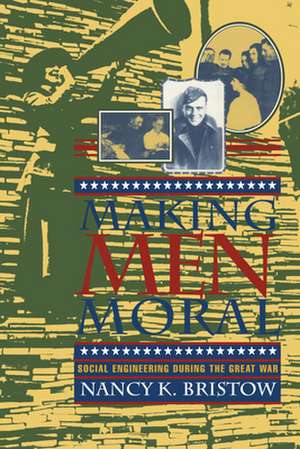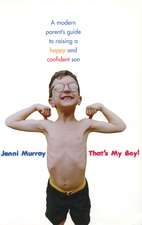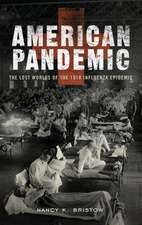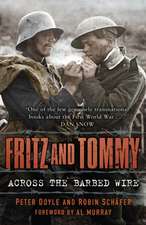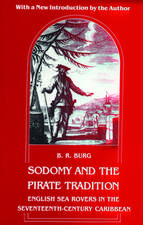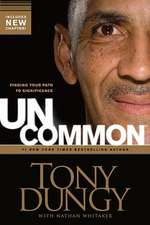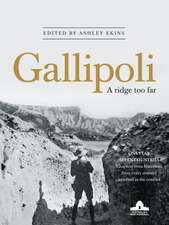Making Men Moral – Social Engineering During the Great War: The American Social Experience
Autor Nancy K. Bristowen Limba Engleză Paperback – 30 sep 1997
| Toate formatele și edițiile | Preț | Express |
|---|---|---|
| Paperback (1) | 244.90 lei 6-8 săpt. | |
| MI – New York University – 30 sep 1997 | 244.90 lei 6-8 săpt. | |
| Hardback (1) | 529.27 lei 6-8 săpt. | |
| MI – New York University – 31 dec 1995 | 529.27 lei 6-8 săpt. |
Din seria The American Social Experience
-
 Preț: 241.08 lei
Preț: 241.08 lei -
 Preț: 239.51 lei
Preț: 239.51 lei -
 Preț: 240.49 lei
Preț: 240.49 lei -
 Preț: 225.71 lei
Preț: 225.71 lei -
 Preț: 245.49 lei
Preț: 245.49 lei -
 Preț: 242.92 lei
Preț: 242.92 lei -
 Preț: 210.32 lei
Preț: 210.32 lei -
 Preț: 227.62 lei
Preț: 227.62 lei -
 Preț: 245.49 lei
Preț: 245.49 lei -
 Preț: 240.27 lei
Preț: 240.27 lei -
 Preț: 242.22 lei
Preț: 242.22 lei -
 Preț: 241.64 lei
Preț: 241.64 lei -
 Preț: 253.55 lei
Preț: 253.55 lei -
 Preț: 243.19 lei
Preț: 243.19 lei -
 Preț: 243.58 lei
Preț: 243.58 lei -
 Preț: 242.40 lei
Preț: 242.40 lei -
 Preț: 226.67 lei
Preț: 226.67 lei -
 Preț: 247.23 lei
Preț: 247.23 lei -
 Preț: 225.49 lei
Preț: 225.49 lei -
 Preț: 226.67 lei
Preț: 226.67 lei
Preț: 244.90 lei
Nou
Puncte Express: 367
Preț estimativ în valută:
46.87€ • 50.89$ • 39.37£
46.87€ • 50.89$ • 39.37£
Carte tipărită la comandă
Livrare economică 22 aprilie-06 mai
Preluare comenzi: 021 569.72.76
Specificații
ISBN-13: 9780814713082
ISBN-10: 0814713084
Pagini: 322
Dimensiuni: 152 x 229 x 15 mm
Greutate: 0.49 kg
Ediția:Revised
Editura: MI – New York University
Seria The American Social Experience
ISBN-10: 0814713084
Pagini: 322
Dimensiuni: 152 x 229 x 15 mm
Greutate: 0.49 kg
Ediția:Revised
Editura: MI – New York University
Seria The American Social Experience
Descriere
"(Nancy) Bristow successfully combines military history with anecdotes of cultural reform efforts to educate and mold--with movies, dances, exercises, books, and sing-alongs--sexually active soldiers into model citizens".--LIBRARY JOURNAL. 39 photos.
Notă biografică
Textul de pe ultima copertă
On May 29, 1917, Mrs. E. M. Craise, citizen of Denver, Colorado, penned a letter to President Woodrow Wilson, which concluded, "We have surrendered to your absolute control our hearts dearest treasures - our sons. If their precious bodies that have cost us so dear should be torn to shreds by German shot and shells we will try to live on in the hope of meeting them again in the blessed Country of happy reunions. But, Mr. President, if the hell-holes that infest their training camps should trip up their unwary feet and they be returned to us besotted degenerate wrecks of their former selves cursed with that hell-born craving for alcohol, we can have no such hope". Anxious about the United States's pending entry into the Great War, fearful that their sons would be polluted by the scourges of prostitution, venereal disease, illicit sex, and drink that ran rampant in the training camps, and concerned that this war, like others before it, would encourage moral vice and corruption, countless Americans sent such missives to their government officials. In response to this deluge, President Wilson created the Commission on Training Camp Activities to ensure the purity of the camp environment. Training camps would henceforth mold not only soldiers, but model citizens who, after the war, would return to their communities, spreading white urban middle-class values throughout the country. Fortified by temperance, abstinence, self-control, and a healthy athleticism, marginal Americans were to be transformed into truly masculine crusaders. What began as a federal program designed to eliminate venereal disease soon mushroomed into a powerful social force intent on replacing America's many cultures witha single homogeneous one. Though committed to the positive methods of education and recreation, the reformers did not hesitate to employ repression when necessary. Those not conforming to this vision often faced exclusion from the reformers' idealized society, or sometimes even imprisonment. "Unrestrained" cultural expressiveness was stifled. Social engineering ruled the day. Combining social, cultural, and military history and illustrating the deep divisions among reformers themselves, Nancy Bristow, with the aid of dozens of evocative photographs, here brings to life a pivotal era in the history of the U.S., revealing the complex relationship between the nation's competing cultures, progressive reform efforts, and the Great War.
